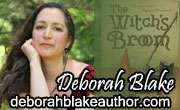
I'm delighted that a long-anticipated book is out at last! The Picatrix: A Medieval Treatise on Astral Magic has been long in production for the Penn State Magic in History line. As a member of Societas Magica I have seen bits of the work in progress which tantalised. From the blurb:
A manual for constructing talismans, mixing magical compounds, summoning planetary spirits, and determining astrological conditions, Picatrix is a cornerstone of Western esotericism. It offers important insights not only into occult practices and beliefs but also into the transmission of magical ideas from antiquity to the present. Dan Attrell and David Porreca’s English translation opens the world of this vital medieval treatise to modern-day scholars and lay readers.
...-
 What other titles are in tis series?
What other titles are in tis series? -
 Click the link to the publisher to see them all.
Click the link to the publisher to see them all.






















